 W
W"All Mixed Up" is a song by the Cars and the final track on their 1978 self-titled debut album. It was written by bandleader Ric Ocasek.
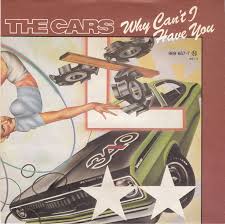 W
W"Why Can't I Have You" is a song by the American new wave band the Cars. The song, written by Ric Ocasek, appeared on the band's fifth studio album Heartbeat City. The song is a lush ballad.
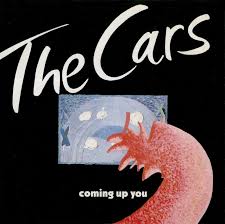 W
W"Coming Up You" is a 1987 song by the Cars, appearing on their sixth studio album Door to Door. It was written by Ric Ocasek and sung by Benjamin Orr.
 W
W"Cruiser" is a song by American new wave band The Cars, from their 1981 album Shake It Up.
 W
W"Don't Tell Me No" is a song by the American New wave band, the Cars. The song, written by Ric Ocasek, appeared on the band's third studio album, Panorama.
 W
W"Don't Tell Me No" is a song by the American New wave band, the Cars. The song, written by Ric Ocasek, appeared on the band's third studio album, Panorama.
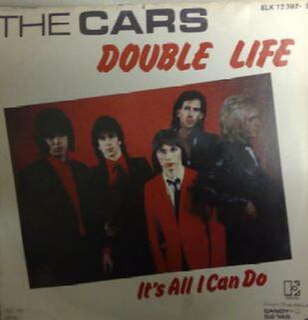 W
W"Double Life" is a single by the American rock band the Cars from their second album Candy-O. Written by Ric Ocasek, the song was almost left off the album. The song was released as the third single from the album in 1979, but did not chart.
 W
WDoor to Door is the sixth studio album by the American rock band the Cars. It was released in 1987 on Elektra Records.
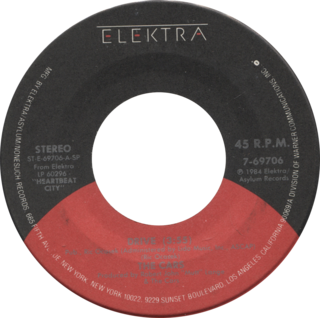 W
W"Drive" is a 1984 song by the Cars, released in March 1984 as the third single from the band's Heartbeat City album, and their biggest international hit. Written by Ric Ocasek, the track was sung by bassist Benjamin Orr and produced by Robert John "Mutt" Lange with the band. Upon its release, "Drive" became the Cars' highest charting single in most territories. In the United States, it peaked at No. 3 on the Billboard Hot 100 chart; on the Adult Contemporary chart, the song went to No. 1. It reached No. 5 in the United Kingdom, No. 4 in West Germany, No. 6 in Canada and No. 3 in Ireland.
 W
W"Gimme Some Slack" is a song by the American rock band the Cars from the album Panorama. The song was written by bandleader Ric Ocasek.
 W
W"Good Times Roll" is a song by American rock band the Cars released as the first track from their 1978 debut album The Cars. Written by Ric Ocasek as a sarcastic comment on rock's idea of good times, the song features layered harmonies courtesy of producer Roy Thomas Baker.
 W
W"Heartbeat City" is a song by American new wave band the Cars. The song, written by Ric Ocasek, is the closing track on the band's fifth studio album Heartbeat City.
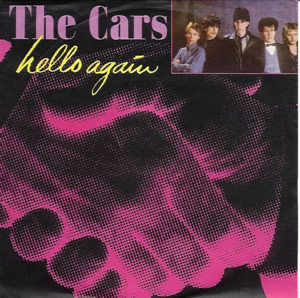 W
W"Hello Again" is a song performed by the rock band the Cars, released in 1984 as the fourth single from the album Heartbeat City. It was the fourth Top 20 hit from the album, reaching number 20 on the Billboard Hot 100 chart; it also reached number 8 on the Dance Music/Club Play Singles chart and number 22 on the Mainstream Rock chart. Ric Ocasek sings lead vocals on the track.
 W
W"I'm Not the One" is a song by the American rock band the Cars, from their fourth album, Shake It Up. It features Ric Ocasek on lead vocals, Benjamin Orr singing the 'You Know Why' phrase, with the whole group repeating "going round and round" as backing vocals throughout the song.
 W
W"It's All I Can Do" is a song by the American rock band the Cars. It is the third track from their 1979 album Candy-O. It was written by the band's leader and songwriter Ric Ocasek, and features bassist Benjamin Orr on vocals.
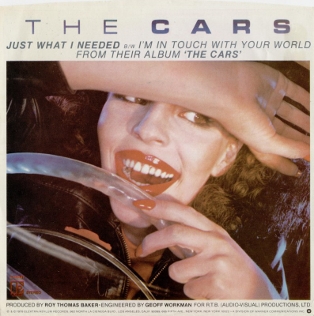 W
W"Just What I Needed" is a song by American rock band The Cars from their self-titled debut album, released in 1978 on Elektra Records. The song, which first achieved radio success as a demo, took inspiration from the Ohio Express and the Velvet Underground. The song is sung by bass player Benjamin Orr and was written by Ric Ocasek.
 W
WDoor to Door is the sixth studio album by the American rock band the Cars. It was released in 1987 on Elektra Records.
 W
W"Let's Go" is a 1979 song by the Cars, written by Ric Ocasek for the band's second studio album Candy-O. A new wave rock song, the song's hook was inspired by the Routers. The song's vocals are performed by bassist Benjamin Orr.
 W
WHeartbeat City is the fifth studio album by American rock band the Cars. It was released on March 13, 1984, by Elektra Records. The band produced the album with Robert John "Mutt" Lange. Met with a positive commercial response, the album had numerous tracks getting airplay with the hit singles "Drive" and "You Might Think" reaching the top 10 of the Billboard Hot 100. The album also received favorable reviews from several critics; for example, Robert Christgau stated that "the glossy approach the Cars invented has made this the best year for pure pop in damn near twenty years, and it's only fair that they should return so confidently to form."
 W
WCandy-O is the second studio album by the American rock band the Cars. It was released in 1979 on Elektra Records. Featuring the Top 20 hit "Let's Go" and the minor hit "It's All I Can Do", the album charted 15 places higher than its predecessor on the US Billboard 200 at number three as their debut peaked at number eighteen. The album features cover art by pin-up artist Alberto Vargas.
 W
W"Magic" is a song performed by the American rock band the Cars from their fifth studio album, Heartbeat City, released in 1984. It was released as a single and reached number 12 on the US Billboard Hot 100 and number one on the Billboard Top Tracks chart. The track was written by Ric Ocasek and produced by Robert "Mutt" Lange and the Cars. Ocasek sang lead vocals.
 W
W"My Best Friend's Girl" is a song by American rock band the Cars from their 1978 self-titled debut album on Elektra Records, released on June 6 of that year. Written by Ocasek as a song about something that "probably ... happened to a lot of people," the track found radio success as a demo in 1977.
 W
W"Sad Song" is the lead single by the American rock band the Cars from their 2011 studio album Move Like This, and the final single put out in their lifetime. A brief clip of the track was released in December 2010; the full song was released to radio on March 1, 2011.
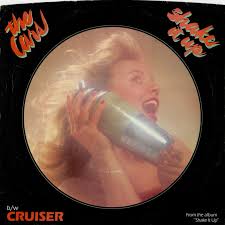 W
W"Shake It Up" is a song by the Cars from their 1981 album of the same name. Although appearing for the first time in 1981, it was actually written years earlier by the band's songwriter and lead singer Ric Ocasek. The song became one of the Cars' most popular songs. With the track "Cruiser" as its b-side, it hit No. 14 on the Billboard Disco Top 80 chart.
 W
WCandy-O is the second studio album by the American rock band the Cars. It was released in 1979 on Elektra Records. Featuring the Top 20 hit "Let's Go" and the minor hit "It's All I Can Do", the album charted 15 places higher than its predecessor on the US Billboard 200 at number three as their debut peaked at number eighteen. The album features cover art by pin-up artist Alberto Vargas.
 W
WCandy-O is the second studio album by the American rock band the Cars. It was released in 1979 on Elektra Records. Featuring the Top 20 hit "Let's Go" and the minor hit "It's All I Can Do", the album charted 15 places higher than its predecessor on the US Billboard 200 at number three as their debut peaked at number eighteen. The album features cover art by pin-up artist Alberto Vargas.
 W
W"Since You're Gone" is a song by the American rock band the Cars. It was released as the second single from their fourth album, Shake It Up.
 W
W"Stay the Night" is a song by the Cars vocalist and bassist Benjamin Orr. It was included on his 1986 solo debut album The Lace, and released as a single in the end of 1986. "Stay the Night" reached #24 on the Billboard Hot 100 chart in the beginning of 1987, becoming Orr's only Top 40 hit as a solo artist.
 W
W"Strap Me In" is a 1987 song by the Cars, appearing on their sixth studio album Door to Door.
 W
WDoor to Door is the sixth studio album by the American rock band the Cars. It was released in 1987 on Elektra Records.
 W
W"Let's Go" is a 1979 song by the Cars, written by Ric Ocasek for the band's second studio album Candy-O. A new wave rock song, the song's hook was inspired by the Routers. The song's vocals are performed by bassist Benjamin Orr.
 W
W"Think It Over" is a song by the American new wave band the Cars, appearing on their fourth studio album, Shake It Up. It was written by Ric Ocasek.
 W
W"Tonight She Comes" is a 1985 song by American rock band the Cars, from their Greatest Hits album. It was released as a single in October 1985, reaching number 7 on the Billboard Hot 100 in January 1986. The song reached number 1 on the Top Rock Tracks charts, where it stayed for three weeks.
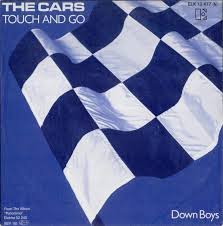 W
W"Touch and Go" is a song by American rock band the Cars from their 1980 album Panorama. The song was written and sung by bandleader Ric Ocasek.
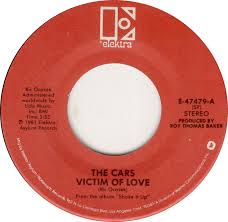 W
W"Victim of Love" is a song by the American new wave band the Cars, appearing on their fourth studio album, Shake It Up. It was written by Ric Ocasek.
 W
W"Why Can't I Have You" is a song by the American new wave band the Cars. The song, written by Ric Ocasek, appeared on the band's fifth studio album Heartbeat City. The song is a lush ballad.
 W
W"You Are the Girl" is a 1987 song by the Cars, from their album Door to Door. It was released as a single in August 1987, reaching number 17 on the Billboard Hot 100. It also reached number 2 on the Mainstream Rock Tracks chart, and number 12 on the Adult Contemporary chart. It was the Cars' 13th and final Top 40 hit.
 W
WCandy-O is the second studio album by the American rock band the Cars. It was released in 1979 on Elektra Records. Featuring the Top 20 hit "Let's Go" and the minor hit "It's All I Can Do", the album charted 15 places higher than its predecessor on the US Billboard 200 at number three as their debut peaked at number eighteen. The album features cover art by pin-up artist Alberto Vargas.
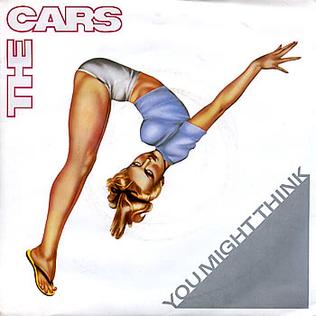 W
W"You Might Think" is a 1984 single by the Cars from their fifth studio album, Heartbeat City. The track was written by Ric Ocasek and produced by Mutt Lange and the Cars, with Ocasek also providing the lead vocals.
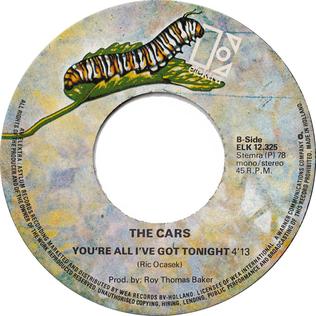 W
W"You're All I've Got Tonight" is a song by the American rock band the Cars, from their debut album, The Cars. Like "Bye Bye Love" and "Moving in Stereo", two other songs from the album, it continues to receive airplay on classic rock stations today despite never having been released as a single.